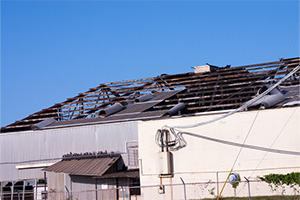Many business owners rely on insurance for peace of mind as it offers financial protection in the event of an unforeseen event. However, even with a comprehensive policy or insurance package, claims can still be denied. Understanding the common reasons for claim denials can help you choose the right coverage and take the necessary steps on how to file business insurance claims effectively. Let’s explore the top 7 reasons why business insurance claims get denied.
7 Reasons Business Insurance Claims Get Rejected
Business insurance claims can be rejected for a surprising number of reasons. Here are some of the most common reasons:
1. Not Everything is Covered

Business insurance policies, like personal ones, have exclusions. Unfortunately, insurers can’t cover everything. These exclusions exist because certain events are statistically too risky or expensive to insure for every business. For instance, common exclusions might include events like war, riots, cyberattacks, or natural disasters like earthquakes and floods. In some cases, you might be able to purchase additional coverage or add endorsements to address specific exclusions. If you’re unsure whether a specific event is covered, reach out to your insurance agent for clarification.
2. You Don’t Have Enough Coverage
Your insurance policy has a limit on how much it will pay for a covered loss. If the value of your business such as your property, equipment, or even the potential cost of a lawsuit exceeds your policy’s coverage limits, you’re underinsured. While insurance will help cover some loss, it won’t fully compensate you for the entire loss if your coverage isn’t sufficient. This gap can be a significant reason why claims get denied – the insurance company can’t fulfill the entire request because it exceeds the agreed-upon coverage amount in your policy.
3. Fraudulent Claims
Business insurance is designed to protect you from unforeseen accidents or disasters, not situations you intentionally cause. Any claims that involve fraudulent loss – exaggerating the real damages or submitting claims for entirely fabricated events – are considered fraud. If your insurer suspects fraud, your claim will be denied. Additionally, they might launch an investigation that could involve legal repercussions, including fines or even criminal charges depending on the severity of the case.
4. Out-of-Date Information
As your business evolves and grows, your insurance coverage needs to adapt alongside it. You might have purchased new equipment, expanded your inventory, or even hired more staff. If this update isn’t relayed to your insurer and reflected in your policy, those new assets won’t be covered in the event of a loss. Think of your business insurance as a living document. You should update your policy regularly to reflect the current state of your business. In extreme cases, failing to keep your policy current could lead to coverage gaps or even be seen as misrepresenting your business to the insurer.
5. Delay in Filing Your Claim

Time is of the essence when it comes to filing a business insurance claim. Letting too much time lapse between the incident and filing the claim can raise red flags for insurers who might suspect fraudulent activity. Most importantly, business insurance policies typically have specific timeframes or a statute of limitations for filing claims. Missing these deadlines can run the risk of your claim being denied.
6. Policy Cancelled or Lapse
Remember, your insurance is a contract. By paying your premiums on time, you’re fulfilling your part of the agreement, and in return, the insurer agrees to cover you for specified events. A lapse in payment creates a gap in this contract. Even a short lapse in payment can be enough for an insurance company to deny a claim because they weren’t obligated to cover your loss during that inactive period.
7. Wear and Tear Exclusion
Business property experiences gradual wear and tear over time due to everyday use and aging. Unfortunately, this can manifest into bigger problems in the future and insurers generally see it as a natural consequence of regular use. Therefore, most insurance policies won’t cover wear and tear. Consider additional coverage options, like equipment breakdown insurance, if you’re concerned about the potential for wear-and-tear-related breakdowns.
How to Ensure a Smooth Business Insurance Claim Process
Business insurance provides a safety net for unforeseen events, but navigating the claims process can be tricky. To maximize your chances of a successful claim and minimize frustration, consider these tips:
- Understand Your Policy: Don’t just buy a policy and forget it. Take time to understand what your policy covers and excludes. Pay close attention to details like coverage limits and deductibles. If anything is unclear, don’t hesitate to ask your insurance agent for clarification.
- Document Everything: Detailed records become your best friend when you need to file a business insurance claim. Maintain comprehensive documentation of your business operations, including property values, inventory lists, and financial records. Take photographs, gather witness statements, and obtain police reports if needed. The more detailed your records, the easier it will be for your insurer to assess the situation and process your claim efficiently.
- Don’t Delay: Most business insurance policies have specific timeframes for filing claims, often referred to as a statute of limitations. Missing these deadlines can significantly increase your chances of denial. File your claim promptly after the incident occurs. This demonstrates to your insurer that you’re taking the situation seriously and acting proactively to resolve it.
Let AIS Assess Your Business Insurance Needs
Protect your business with the right commercial insurance coverage. Our team of Commercial Insurance Specialists can help you compare quotes and ensure you have the coverage you need. Contact us today at (888) 772-4247 for a quick and easy free insurance quote.
The information in this article is obtained from various sources and offered for educational purposes only. Furthermore, it should not replace the advice of a qualified professional. The definitions, terms, and coverage in a given policy may differ from those suggested here. No warranty or appropriateness for a specific purpose is expressed or implied.


